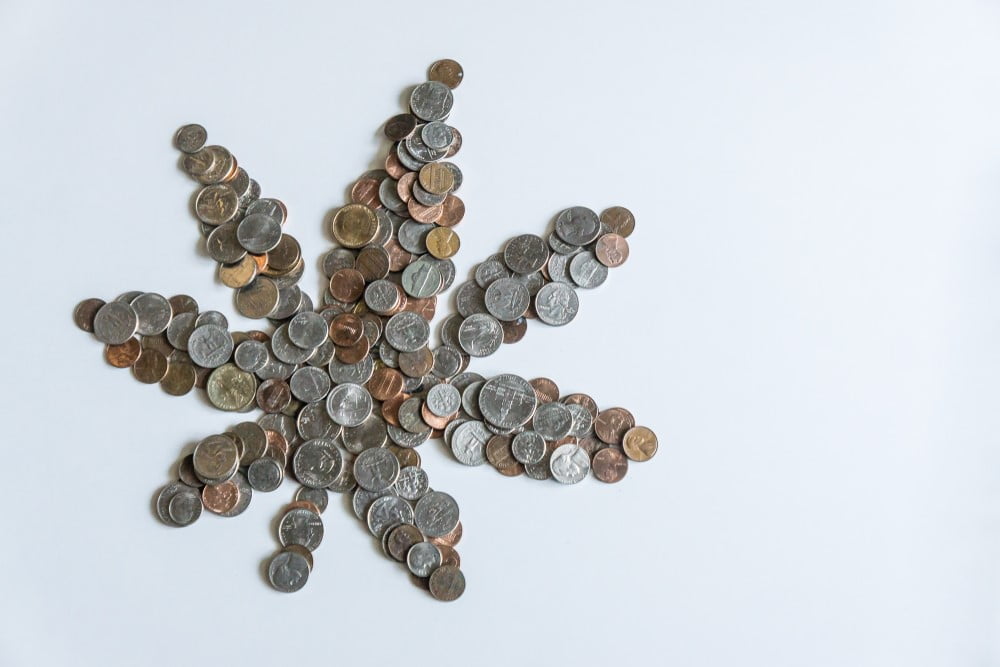The state's excise taxes on cannabis are extraordinarily high at 15 percent.

California’s cannabis taxes are notoriously high. When Cali lawmakers legalized recreational bud, they did so with the express intention of capitalizing on the state’s cannabis culture to increase tax revenues and fund much-needed government projects. Though the steep taxes are an unending source of debate, they seem to be here to stay for the foreseeable future at least.
Thus, anyone interested in entering the California cannabis industry needs to know what kinds of taxes and fees affect them. Here’s a rundown of all cannabis taxes in California for all types of canna-businesses.
Sales and use taxes are common taxes levied on retail businesses throughout California. The difference between sales and use taxes are negligible; both involve the government taking a percentage of the price of a sale, and they are mutually exclusive, meaning a single sale isn’t subject to both sales and use taxes. Consumers might be required to pay use taxes if they were not subject to sales tax on a certain purchase; for example, if dispensary owners consumed cannabis products without purchasing them, they might be subject to a use tax. However, California isn’t diligent about tracking down and compelling use tax payments, and most cannabis entrepreneurs need only concern themselves with sales taxes, anyway.
California levies a 7.25 percent state sales tax, and local jurisdictions can increase that by up to 1.0 percent — and most do. California law states that the sale of all tangible personal property is subject to taxation, which includes cannabis products. The only exception is some medical marijuana sales; because paying taxes on must-have medical treatments can impose financial hardship, California and other states often do not levy taxes on medical cannabis or other medical treatments. Everyone else besides medical marijuana cardholders will see a line for sales tax on their Los Angeles dispensary receipt.
While sales and use taxes in California are high, they aren’t back-breaking to cannabis entrepreneurs — but excise and cultivation taxes can be. Excise taxes are taxes levied on specific goods; in the past, excise taxes have been called “sin taxes” or “vice taxes” because they are typically applied to goods that have been deemed unnecessary and even morally wrong by society. California has excise taxes on tobacco and alcohol, but its excise taxes on cannabis are extraordinarily high at 15 percent the average market value of cannabis.
Additionally, California imposes a cultivation tax, which growers are compelled to pay when their product enters the commercial market — that is, after the product has undergone testing and quality assurance and is available for distribution. Different tax rates are imposed on different types of cannabis products; cultivators must pay:
● $9.25 per dry-weight ounce of flower
● $2.75 per dry-weight ounce of leaves
● $1.29 per ounce of fresh cannabis plant
Technically, California cannabis policy requires the regulatory board to adjust these tax rates every year to account for inflation, but the board has not done so since 2020.
Though not exactly a tax, licensing and registration are ongoing costs that canna-businesses incur. Licensing fees must be paid on an annual basis, which means entrepreneurs need to account for these steep outlays in their business models. Different types of cannabis businesses are expected to pay different types of licensing fees:
● Retailers pay a $1000 license application fee and licensing fees between $2,500 and $96,000
● Cannabis laboratories pay licensing fees between $3,000 and $72,000
● Distribution companies pay licensing fees between $1,500 and $240,000
● Cultivators pay between $135 and $9,000 for license applications and between $1,200 and $78,000 in licensing fees
● Manufacturers pay between $500 and $1000 for licensing applications and between $2,000 and $75,000 in licensing fees.
The reason for the range in costs is twofold: California allows cities and counties to develop their own fee structure for cannabis business licensing, and the size of fees can depend on the size and structure of the cannabis business.
California’s cannabis taxes are steep — but cannabis businesses thrive nonetheless. With the right business model and pricing structure, any canna-entrepreneur can find success.
California, known for its diverse economy and thriving tech industry, is a hotbed for innovation.…
As a violinist, I can't stress enough how crucial a top-notch case is in the…
Imagine a life where limitations do not exist—a life where you relentlessly pursue your dreams…
Asbestos exposure has left a long legacy of health issues in Australia, particularly mesothelioma and…
Did you know maintenance and financing, fuel management, driver management, vehicle monitoring and diagnostics, and…
It can be difficult to meet a matching spouse in this fast-paced environment. Online dating…